50+ Sample Contractor Agreements
-
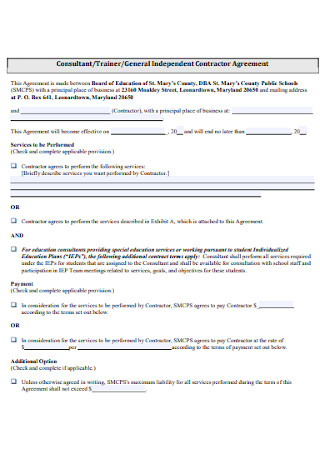
General Independent Contractor Agreement
download now -
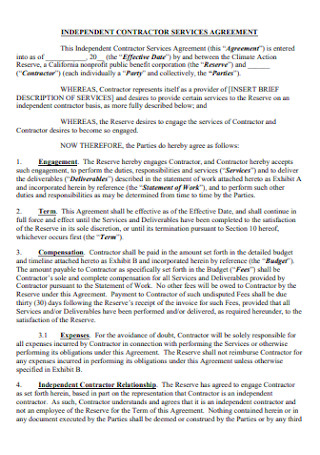
Contractor Services Agreement
download now -
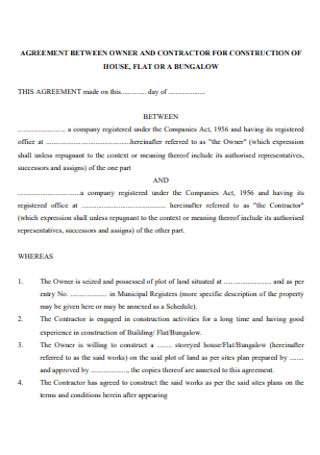
Construction for Contractor Agreement
download now -
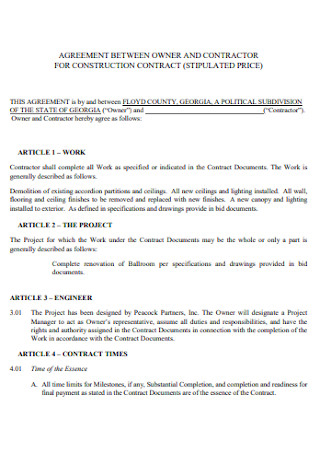
Owner and Contractor Agreement
download now -
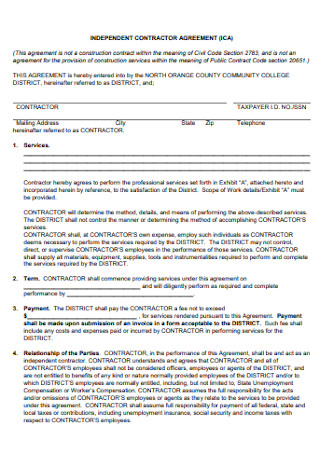
Sample Contractor Agreement
download now -
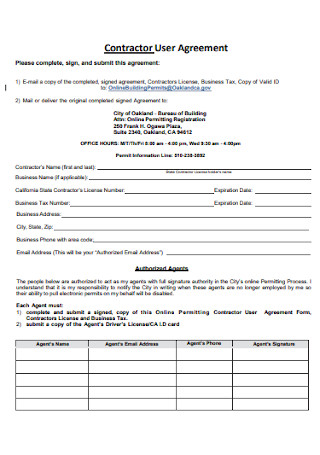
Contractor User Agreement
download now -
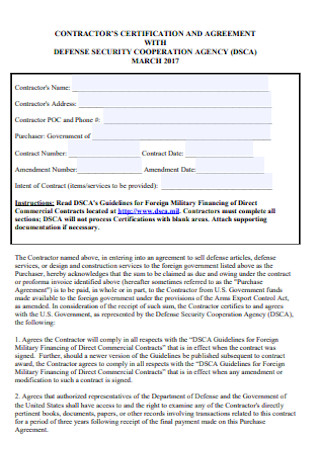
Contractors Certification Agreement
download now -
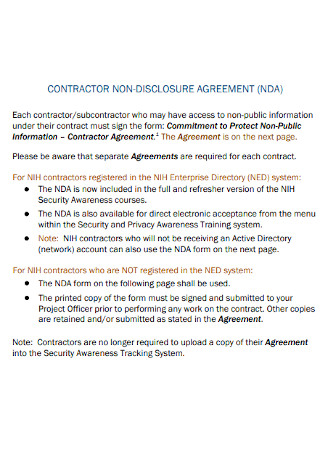
Contractor Non-Disclosure Agreement
download now -
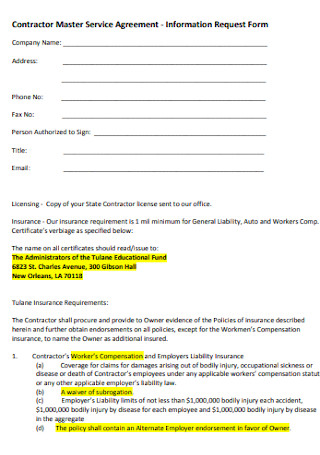
Contractor Master Service Agreement
download now -
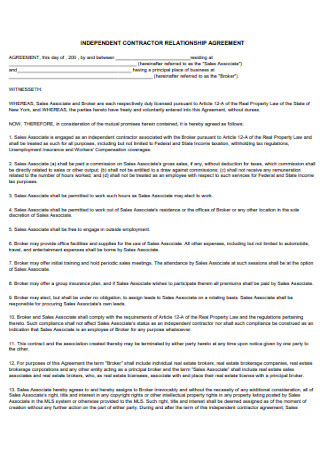
Contractor Relationship Agreement
download now -
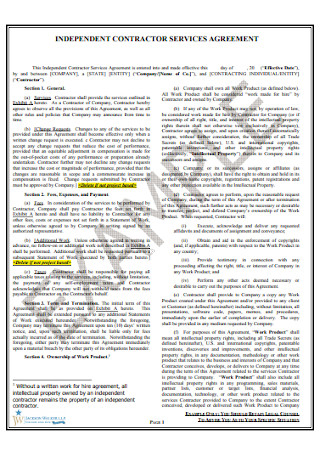
Contractor Services Agreement Example
download now -
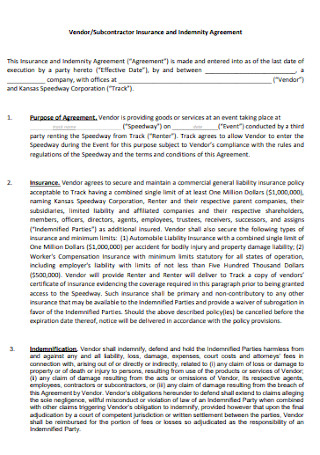
Subcontractor Insurance Agreement
download now -
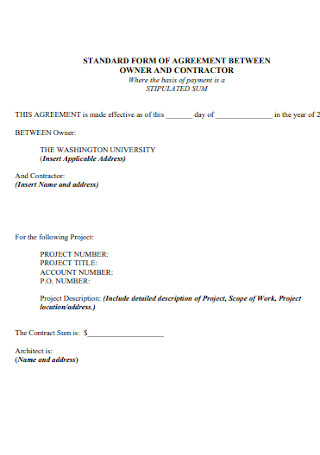
Subcontractor Agreement Form
download now -
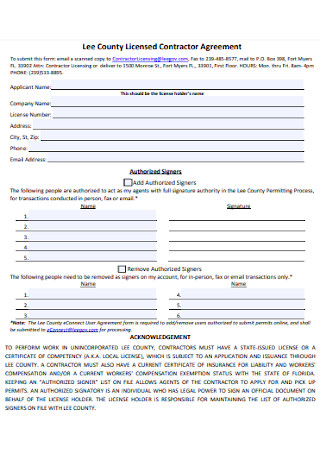
County Licensed Contractor Agreement
download now -
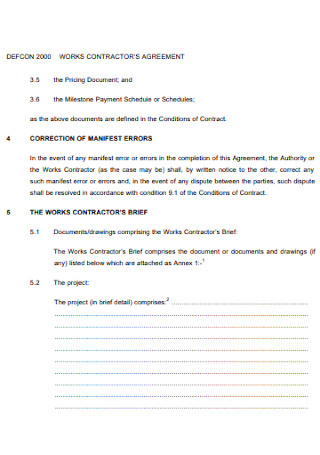
Works Contractor Agreement
download now -
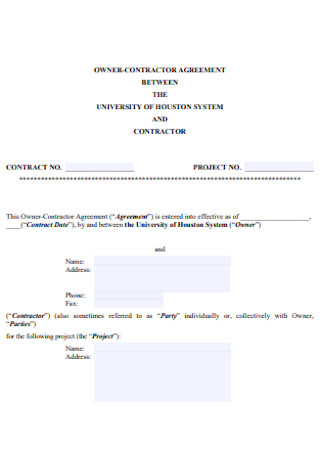
Owner Contractor Agreement
download now -
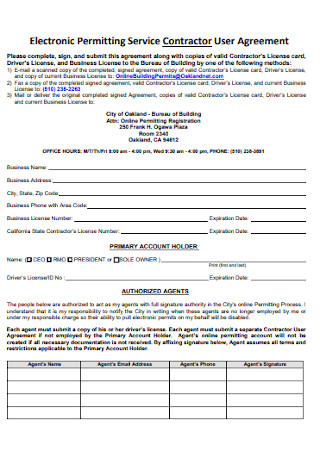
Electronic Permitting Contractor User Agreement
download now -
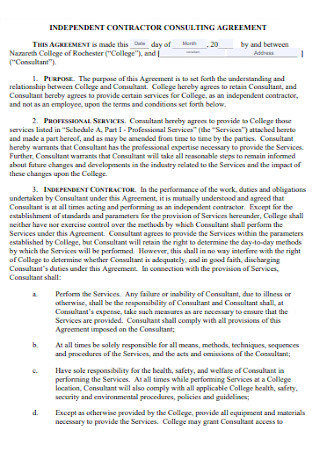
Contractor Consulting Agreement
download now -
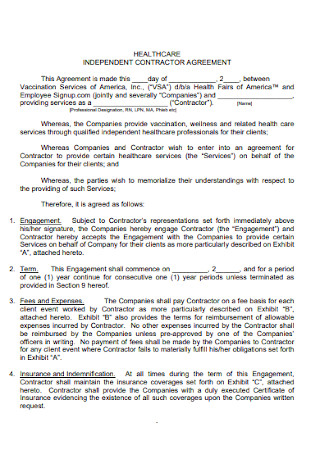
Healthcare Contractor Agreement
download now -
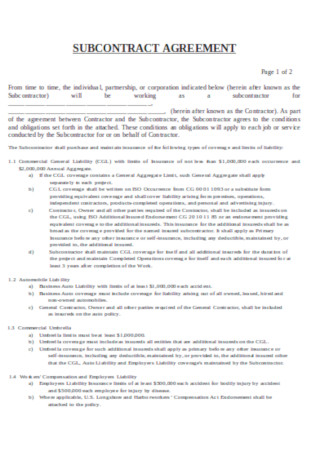
Annual Subcontractor Agreement
download now -
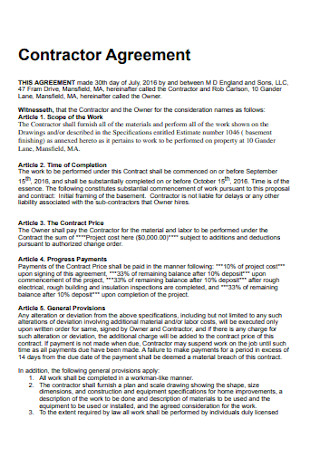
Simple Contractor Agreement
download now -
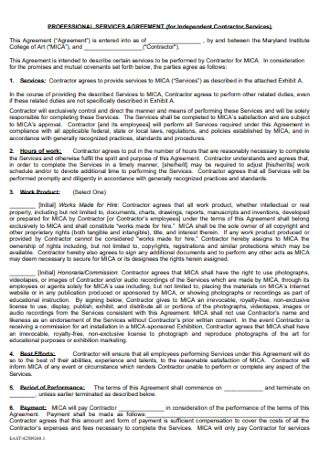
Professional Contractor Agreement
download now -
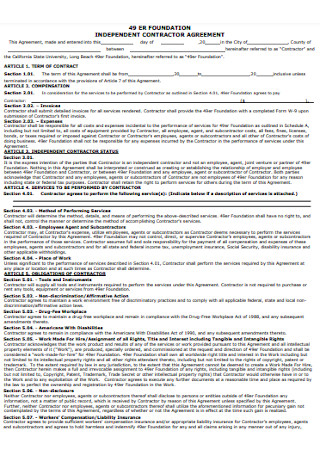
Foundation Contractor Agreement
download now -
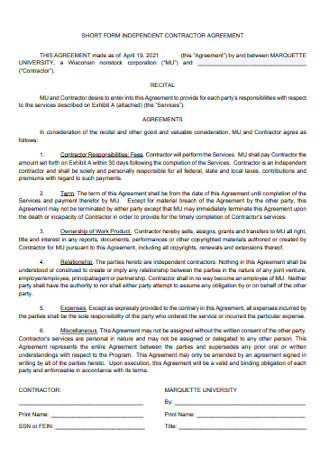
Short Form for Contractor Agreement
download now -
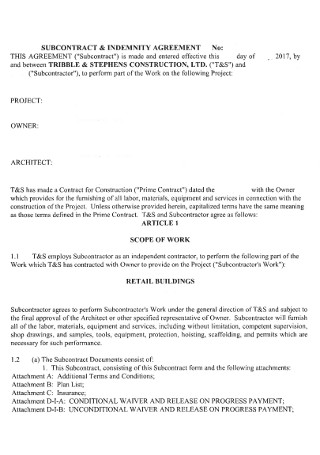
Subcontractor Indemnity Agreement
download now -
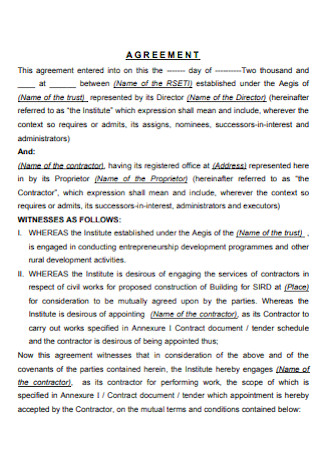
Formal Contractors Agreement
download now -
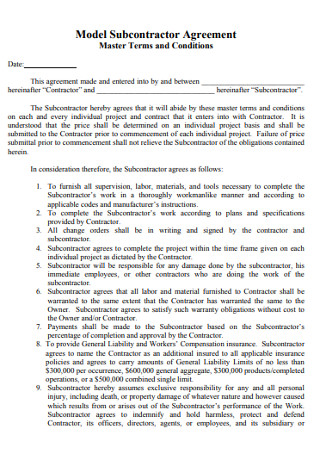
Model Contractor Agreement
download now -
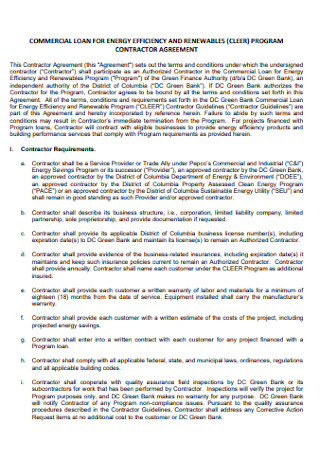
Program Contractor Agreement
download now -
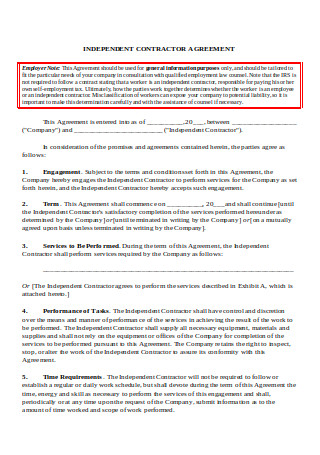
Independent Contractor Agreement
download now -
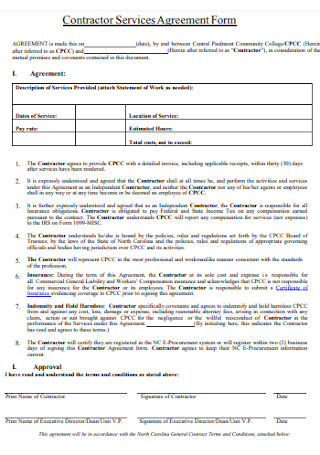
Contractor Services Agreement Form
download now -
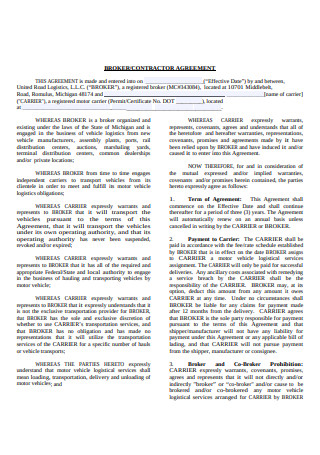
Broker Contractor Agreement
download now -
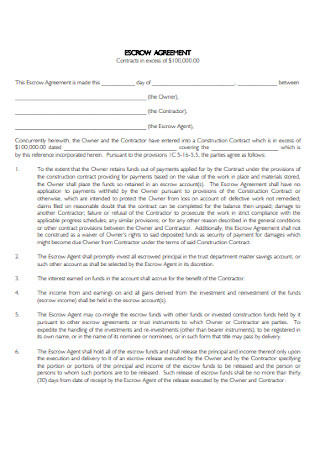
Contractor Escrow Agreement
download now -
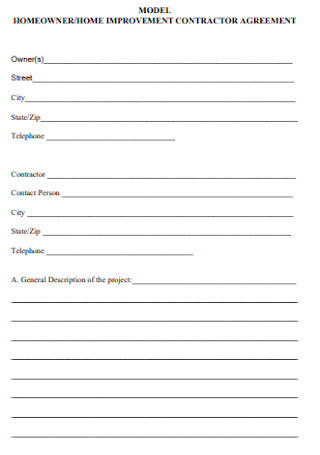
Home Improvment Contractor Agreement
download now -
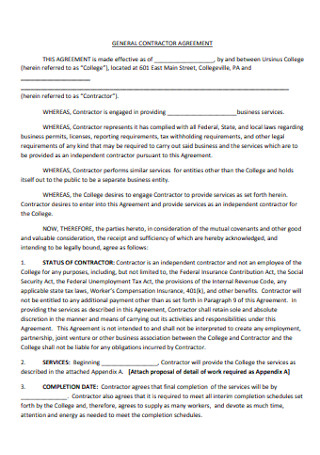
General Contractor Agreement
download now -
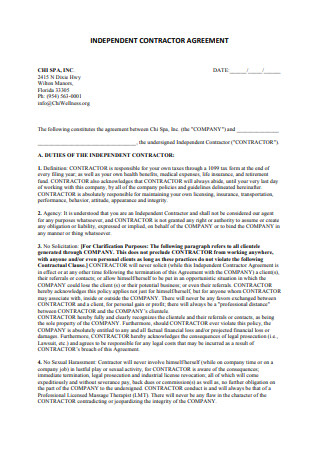
Contractor Rental Agreement
download now -
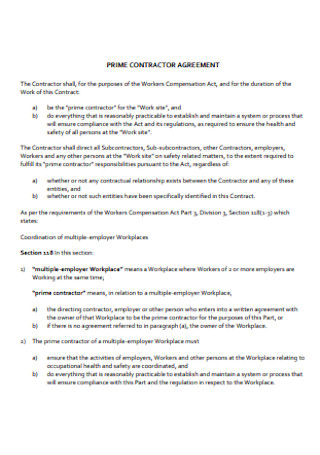
Prime Contractor Agreement
download now -
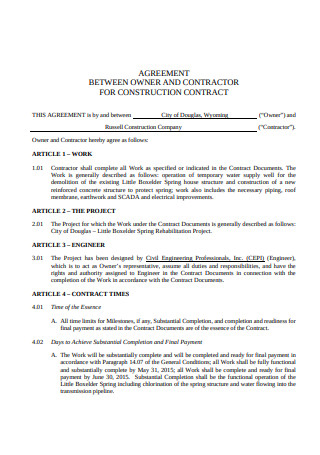
Contractor and Owner Agreement
download now -
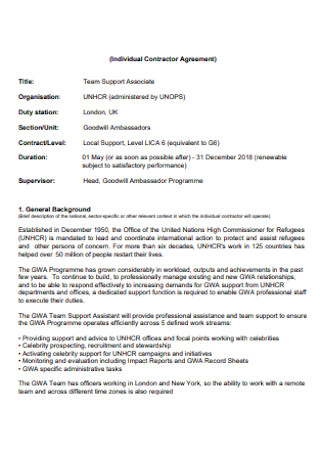
Individual Contractor Agreement
download now -
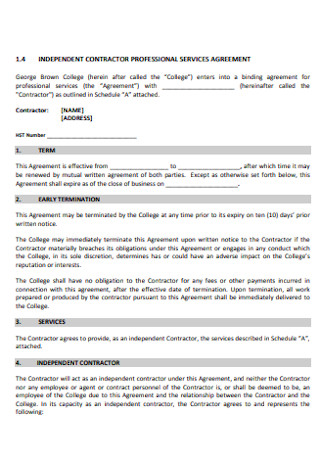
Professional Contractor Services Agreement
download now -
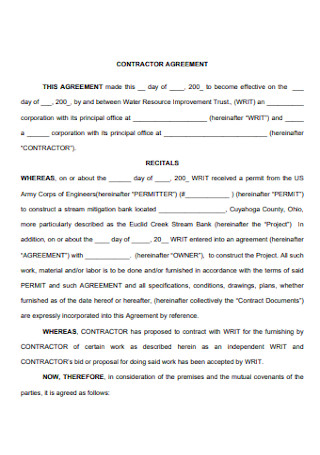
Formal Contractor Agreement
download now -
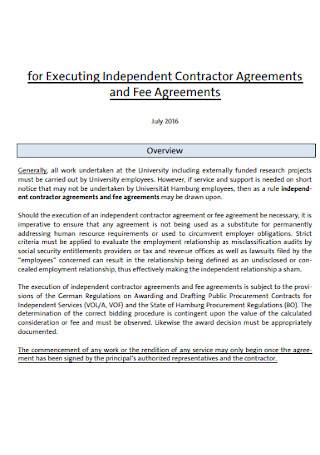
Executing Independent Contractor Agreement
download now -
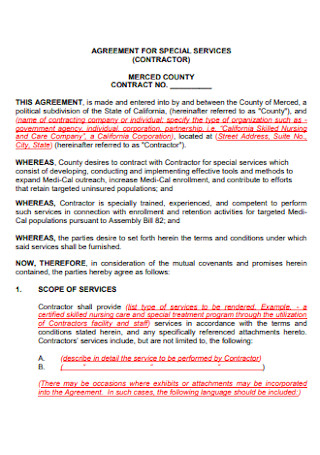
Agreement for Special Service Contractor
download now -
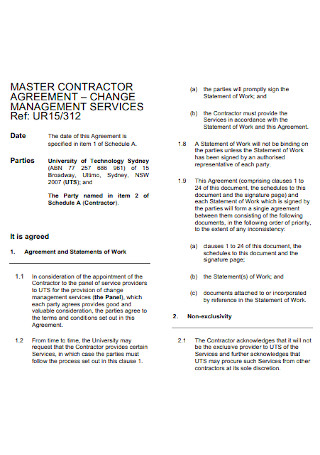
Master Contractor Agreement
download now -
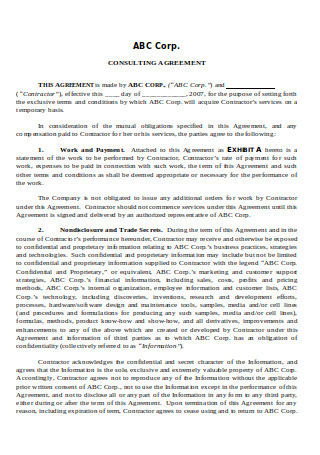
Consultant or Contractor Agreement
download now -
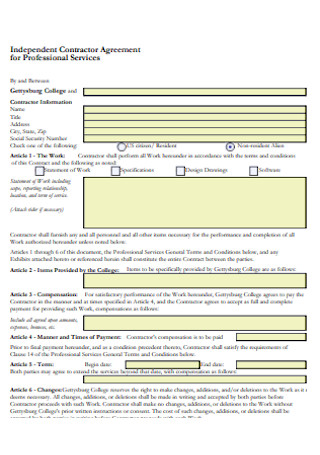
Contractor Agreement for Professional Services
download now -
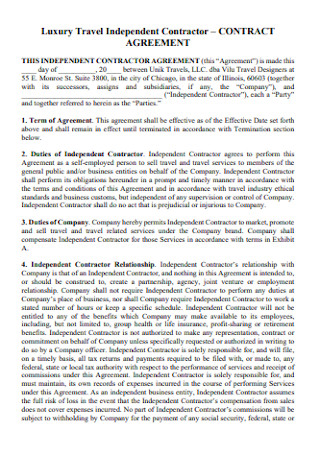
Luxury Travel Contractor Agreement
download now -
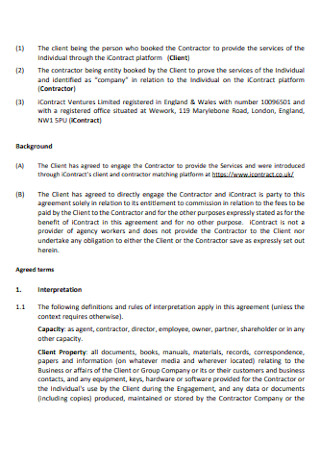
Contractor Engagement Agreement
download now -
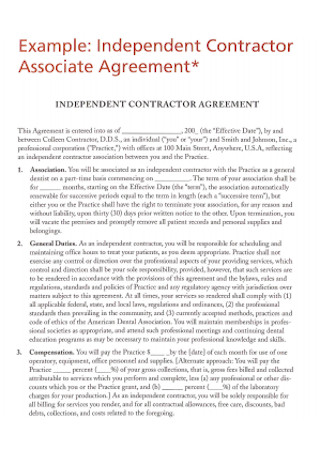
Contractor Associate Agreement
download now -
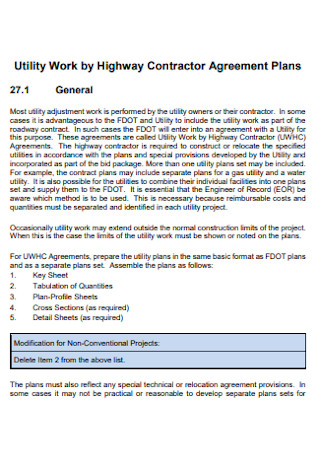
Highway Contractor Agreement Plan
download now -
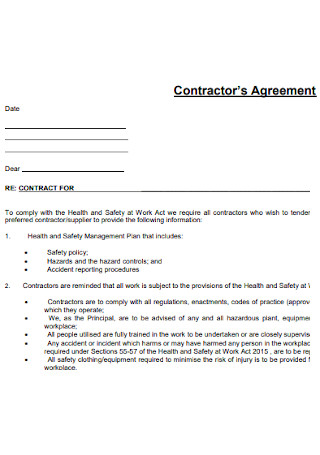
Racing Contractor Agreement
download now
FREE Contractor Agreement s to Download
50+ Sample Contractor Agreements
What Is a Contractor Agreement?
Elements of a Contractor Agreement
How to Create a Contractor Agreement
FAQs
What is the difference between a contractor and an employee?
What skills are advantageous to contractors?
What is the importance and purpose of contractor agreements in writing?
What Is a Contractor Agreement?
A contractor agreement is a written agreement between a hiring body and a lender or contractor. Various types of contractors use the document to detail necessary content, including services, clauses, and other terms made between the client. It is a written document that is legally binding, enabling both parties to identify working attachments, accomplish expectations, and prevent misunderstandings. A contractor agreement is essential to the hiring body because they cannot oversee working hours, conditions, and performance. The agreement assures the hiring person that the execution of work is according to the terms and conditions of the agreement signed by both parties.
According to the news release of the United States Bureau of Labor and Statistics titled Contingent and Alternative Employment Arrangements dated June 7, 2018, a record shows that 10.6 million independent contractors or 6.9 percent of total employment are present in May 2017. These individuals identify alternative work arrangements and comprise a large portion of the workforce during that time. At present, plenty of people identify themselves as contractors due to the impact of the pandemic on working conditions.
Elements of a Contractor Agreement
A clear and concise agreement is a beneficial document between the parties. The meticulous process and mutual understanding between the contractor and client result in a fair negotiation. It is essential to include the following elements in an independent contractor agreement to ensure that all details cover the arrangement.
How to Create a Contractor Agreement
A contractor agreement must detail all necessary information agreed upon by both parties. A well-structured contractor agreement sets the limits of the transaction and the relationship between the contractor and the client. It results in lesser disputes, misunderstandings, and even legal manners.
Step 1: Classify the Relationship between the Parties
It is essential to meet up with the client and establish the kind of relationship they want to have during the duration of the agreement. Most contractor agreements between the client and the contractor do not project an employer and employee relationship. Ideally, both parties must agree to the setup before signing the arrangement. If both parties cannot come to terms, it is advisable to continue negotiations until both reach an agreement.
Step 2: Elaborate On the Scope of the Project
Once the implementation of the agreement begins, the contractor understands the scope of the arrangement. The client must list all the activities and work arrangements the contractor achieves at the end of the agreement. The contractor also sites the limitations of the services rendered. Both parties must reach an understanding of the expected outputs and services and the date of completion. The agreement must also include safety plans in the case of unforeseen circumstances.
Step 3: Set Due Dates
Both parties must agree upon a date of completion. The contractor must be conscious of the terms of the agreement and accurately allocate and exhaust all effort, time, resources, and abilities to accomplish the desired product. A specific date ensures the contractor a complete preparation of all necessary materials before it is due.
Step 4: Agree on Payment Terms and Schedules
A settlement of payment between the client and the contractor equates to the length of the agreement. It includes the principal amount to the contractor and if the installment is in increments. The parties must also agree on the cost of construction materials and miscellaneous fees. If the contractor shoulders all the expenses, it must reflect in the agreement to avoid any dispute and confusion. It is also beneficial to talk about the instances of subcontractors entering the transaction and the relation of it to payment terms.
Step 5: Include Necessary Clauses to Protect Both Parties
The agreement must include safety clauses to protect both parties from legal disputes. The contractor agreement is a legal document governed by laws, depending on the arrangement made by the parties. Clauses include indemnification, termination, waiver, warranties, IPs, among others. The clauses allow the contractor and the client to settle on terms that benefit both. It is also essential to identify governing laws regarding the terms of the agreement, especially if the parties are in different states or locations.
FAQs
What is the difference between a contractor and an employee?
By definition, contractors and employees are already different. Contractors operate under an independent business and perform work for multiple clients at a time. A contractor is responsible for submitting invoices related to expenses and provides their tools and equipment. They also manage their taxes. Meanwhile, an employee works for a single employer and is subject to follow work quotas and hours. An employee is also entitled to legal benefits under the W-2 classification. Differences between contractors and employees include relationship differences, area of expertise, control of work, the scope of work, payment patterns, work hours, instructional oversight, filing of taxes, mandated benefits, and partnership classifications. It is necessary to identify if a worker is an independent contractor or a full-time employee. Without proper supervision, misclassification may happen, and it leads to penalties and even lawsuits. It is advisable to seek legal counsel to help navigate complex methods and procedures relating to misclassification. It is better to prevent misclassification rather than to face the consequences afterward.
What skills are advantageous to contractors?
There are key personality traits that contractors, especially independent contractors, must possess to successfully manifest their true potential to be effective contractors. Here are the essential skills and qualities that a successful contractor must hold.
- Self-motivation: Independent contractors must realize that the only way to succeed is to be motivated. One of the many struggles of a contractor involves staying focused on the task and the production of the best results. Individual contractors’ responsibilities include finding leads, contacting potential clients, marketing, and supplying their materials and space. Exceptional planning and organizational skills are required to succeed in the profession. The individual must establish itself as a dependable body.
- Open-minded: Contractors need to be open-minded and be able to ask for help when appropriate. Attempting to do everything independently may result in missing deadlines, failing quality standards, and losing clients. It is vital to acknowledge limitations and work on outsourcing to reduce fatigue and burnout.
- Networking skills: Possessing networking helps a contractor to market themselves, their products, and services. Marketing through social media, referrals, customer reviews, and personal networking drives a business naturally while focusing on the quality of work.
- Patience and flexibility: Steady work is almost impossible for contractors. It is necessary to practice patience and find conventional ways to reach out to clients. Independent contracting requires long working hours to finish a project before a specific deadline. Last-minute changes are probable to happen, especially when a deadline is fast approaching. A contractor must find ways to accommodate these changes without causing trouble to the client.
- Confidence and positivity: Contractors are responsible for their work and seek clients that require to be impertinent and direct. To do this, the contractor must exude confidence in claiming agreements and ensuring the clients are satisfied. Most projects are from referrals and repeat bookings, and it is desirable to stay pleasant and accommodating at all times.
What is the importance and purpose of contractor agreements in writing?
For any kind of interaction, it is critical to have them on a piece of paper. A written agreement saves the parties involved from a lot of misunderstandings, money problems, and negotiations. It protects the interests of the client and the contractor and enforces their rights. The arrangement allows the parties to understand the terms and conditions of the expectations, and most importantly, it holds information on clear and precise agreements. It also sets consequences, processes, and other possible actions if either of the two parties cannot satisfy the duties and obligations present in the negotiation.
Pursuing a career that does not guarantee stability is both exciting and challenging. A contractor is not an easy path to follow because of uncertainties and complications. However, if you always put your best foot forward, plenty of opportunities present themselves for you to grow and expand your horizons. Remember that there is no such thing as an easy job because all jobs require various skill sets. Each person must learn to be motivated, open-minded, social, patient, flexible, outgoing, positive, and above all, hard-working. Nothing beats a person who has clear goals in mind. In the words of Dwayne ‘The Rock’ Johnson, “Success isn’t always about greatness. It’s about consistency. Consistent hard work leads to success. Greatness will come.” Start a business on a positive note with contractor agreement samples in the article above.
